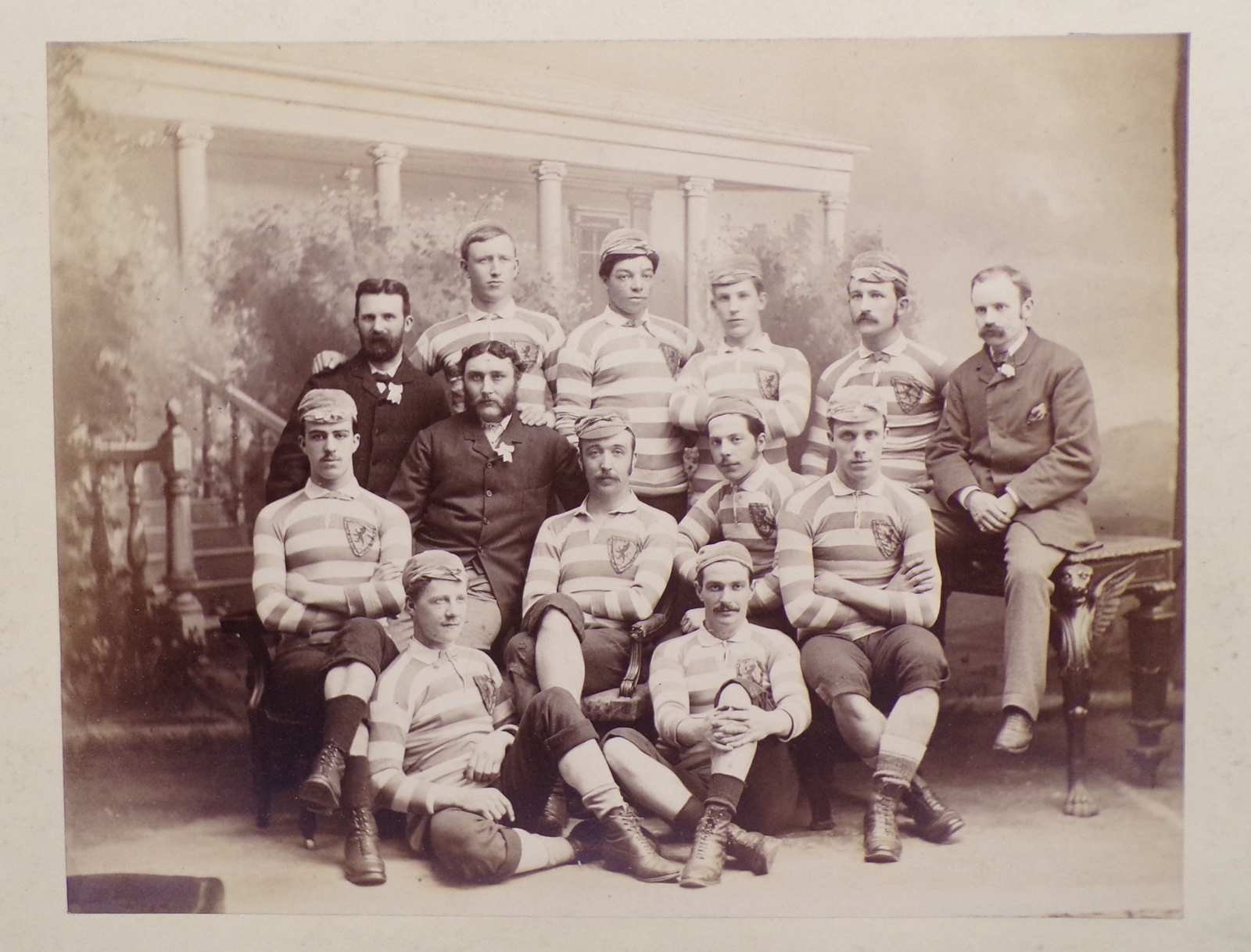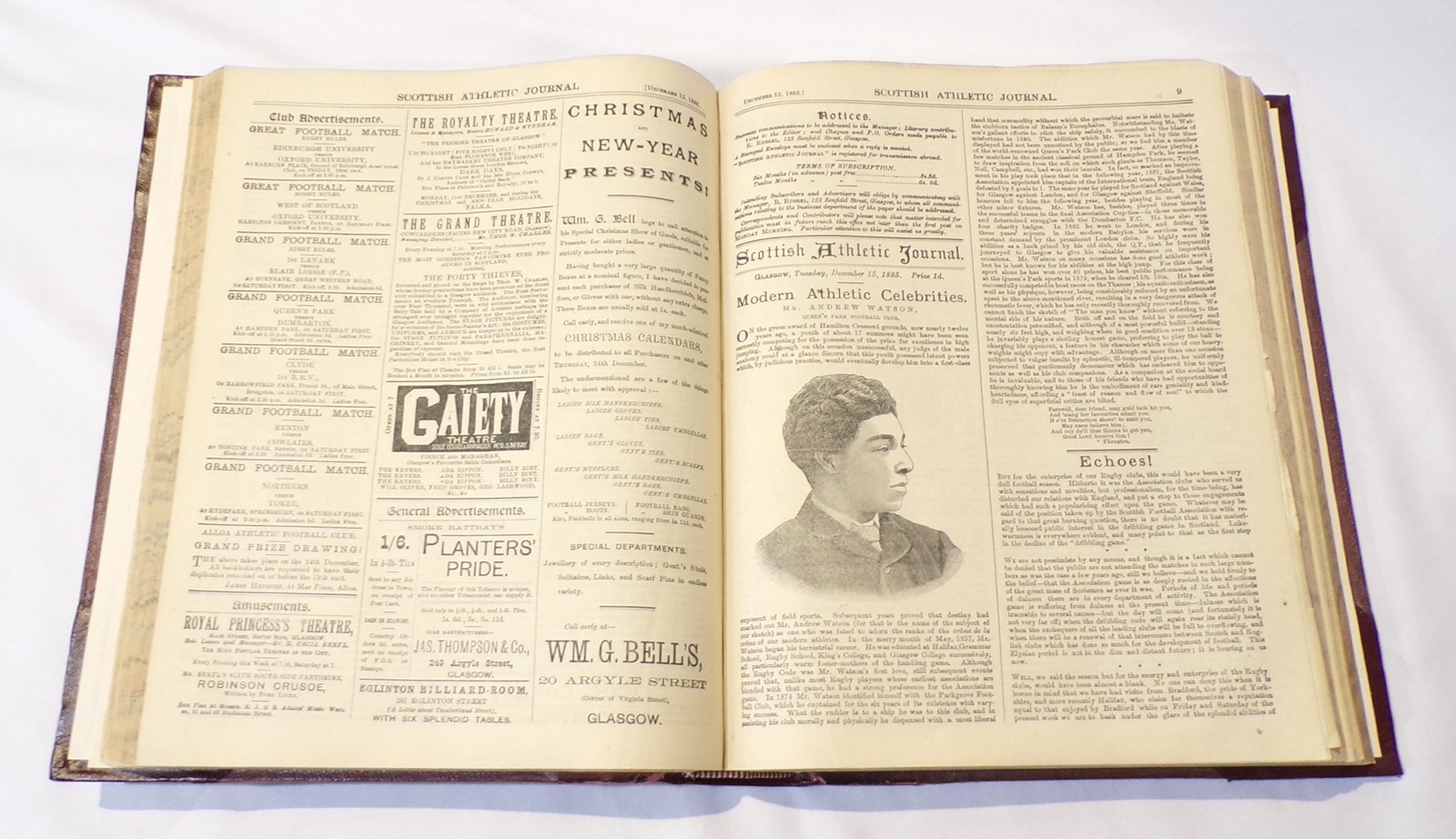Celebrating #BlackHistoryMonth
Andrew Watson: Pioneering the Beautiful Game for Scotland
As we celebrate Black History Month, it's crucial to recognise and honour the remarkable individuals who have left an indelible mark on history, and in our case at the Scottish Football Museum, footballing history. One such trailblazer is Andrew Watson, now regarded as the world’s first black international footballer. His legacy not only transcends the world of sports but also stands as a testament to the power of determination, talent, and breaking barriers. In this blog post, we'll delve into the life and achievements of Andrew Watson, shedding light on his remarkable journey and the impact he had on the beautiful game.
Andrew Watson was born in British Guiana (now Guyana) on the 24th of May 1856. He was the son of Peter Miller Watson, a wealthy Scottish sugar planter and former slave owner, and a Guyanese woman named Hannah Rose. Watson was sent to England for his education, where he attended the prestigious Heath Grammer School in Halifax, West Yorkshire. It was during his time in England that he developed a passion for sport, although rugby was initially the game that he played rather than association football.
In 1874, Andrew Watson moved to Scotland, where he continued his education at the University of Glasgow, studying natural philosophy, mathematics, and engineering. Watson never completed his course but instead became a partner in Watson, Miller and Baird, a wholesale warehouse business in Glasgow. It was in Scotland that he began his football career in earnest, signing for Maxwell FC around 1874, and later moving to Parkgrove FC. In April 1880, he signed for Queen’s Park, then Britain’s largest football team and became their secretary in November 1881. He led the team to two consecutive Scottish Cup wins in 1881 and 1882. This is a black and white mounted photograph of the 1882 Scotland team featuring Andrew Watson.

Watson won three international caps for Scotland between 1881 and 1882, earning his first cap against England. when he captained the side to a 6-1 victory. A few days later, Watson played for Scotland against Wales, winning 5-1. His last cap came in 1882 when Scotland beat England 5-1. Watson's performance was lauded by fans and the press alike, earning him recognition as one of the finest footballers of his era.
In 1882 Watson moved to London and became the first black player to play in the FA Cup when he joined the Swifts Football Club. He also played for other English clubs, including the Corinthians and Bootle FC. Watson assumed the role of “Scotch Professor” and taught his English peers "the science" of a more dynamic passing style.

This is a ‘Modern Athletic Celebrities’ article about Andrew Watson, which appeared in the Scottish Athletic Journal in late 1885. By 1885, Watson’s status as an athletic celebrity was unquestionable- Watson had won the Scottish Cup with Queen’s Park, captained Scotland to a record victory over England at the Oval and played for the famous Corinthian FC in London. The article hints at the on-field abuse Watson faced at the time, stating that he was ‘on more than one occasion subjected to vulgar insults by splenetic, ill-tempered individuals.’ You can see this journal article when you visit The Scottish Football Museum at Hampden Park.
Andrew Watson's groundbreaking achievement transcended the boundaries of sport. He paved the way for future generations of black footballers, challenging racial prejudice and stereotypes. His success demonstrated that talent knows no colour or ethnicity and that anyone, regardless of their background, could excel in the beautiful game.
Watson retired to London, where he died of pneumonia in 1921. In 2012 he was inducted into the Scottish Football Hall of Fame. Watson features prominently in the First Hampden Mural at Hampden Bowling Club. There is also a mural of him in Shawlands that was created by The Glasgow Southside Anti-Racism Art Project. In 2022 he was featured as one of Google’s Doodle Webpages.
As we celebrate Black History Month, it's essential to remember and honour individuals like Andrew Watson, who defied the odds and left an indelible mark on history. His contributions to Scottish football and his groundbreaking achievements as the first black international footballer are a testament to his exceptional talent, determination, and the enduring power of diversity and inclusion in sport. Andrew Watson's story is a reminder that the beautiful game can unite us all, regardless of our backgrounds, and that our differences should be celebrated as strengths rather than obstacles.
By Robyn McCready & Megan Stamper
Book your place
Discover a national football collection to educate and inspire future generations.
Book online or call us today on 0141 616 6139.
Tickets from £8
Tours from 45 minutes

